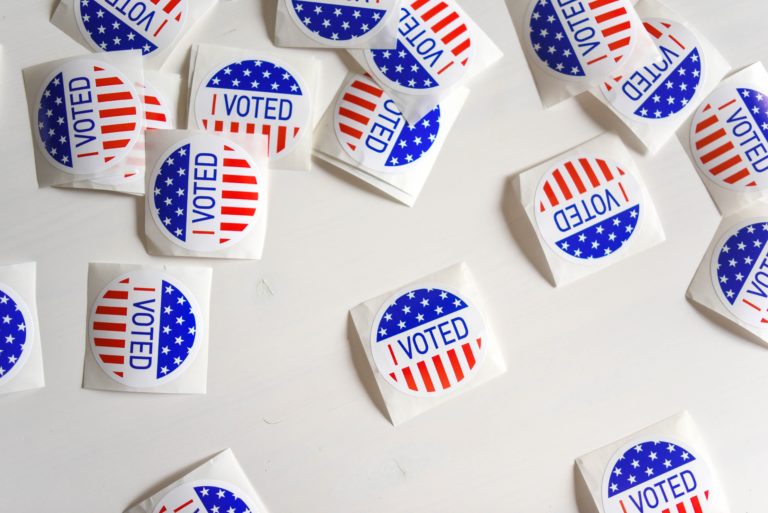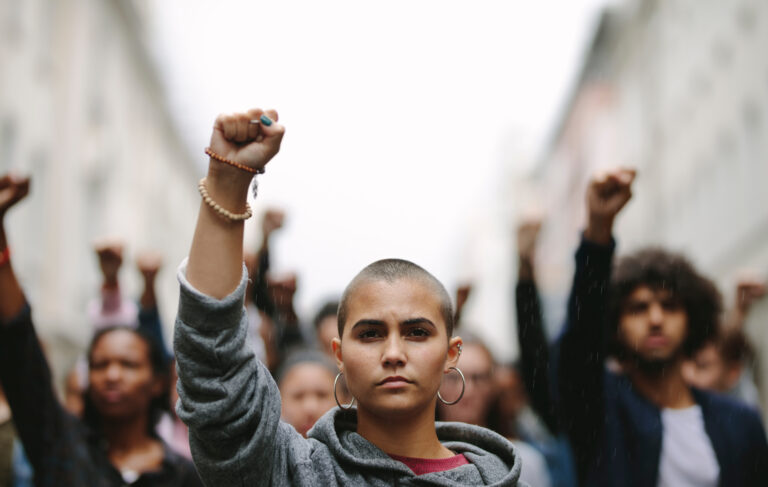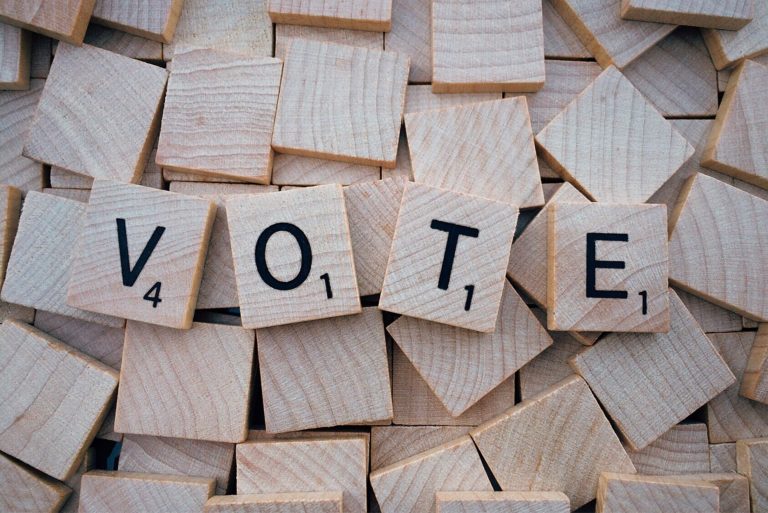On July 19, 1848, over 300 (mostly) women gathered for the Seneca Falls Convention,…
Gen Z Voters Reflect Recent Trends, While Charting Their Own Path

Since Bill Clinton’s election in 1996, a majority of women voters have backed Democratic presidential candidates. In contrast, men have generally favored Republican nominees. How might that gender gap play out this election cycle among the nation’s youngest voters?
In my new book, The Politics of Gen Z, I show that Gen Z women, those born after 1996, engaged at higher levels of politics than Gen Z men during the Trump presidency, including a wide range of both passive forms of politics (such as using social media to follow or post about politics, or discussing politics with friends and family) and active forms (like attending a protest rally or showing up for government meetings). This finding is notable because women have historically engaged in fewer forms of political actions (save voting), at least until the 2010s. Gen Z is the first generation of young women who are actually outperforming Gen Z men. Moreover, Gen Z women are distinct from Gen Z men when it comes to the issues they prioritize and their embrace of liberal political views.
This growing ideological divide has fueled speculation that Gen Z men are becoming more conservative in reaction to the growing embrace of feminist values by Gen Z women. Little wonder, then, that Donald Trump is trying to reach young men by holding interviews with influencers such as Adin Ross and Logan Paul, whose audiences are largely young men. At the same time, Kamala Harris’s appearance on Call Your Daddy, which has millions of young women listeners, is a clear attempt to motivate young women to turnout to vote.
The youth vote (Americans aged 18-29) in the past two election cycles shows that the Trump campaign will likely face a harder challenge in securing the votes of young men than the Harris campaign will face when it comes to young women voters. In 2020, 67% of young women voted for Joe Biden, and a whopping 72% voted for House Democrats in 2022. But it is notable that a majority of young men voters (52%) still voted for Joe Biden, compared with 41% who voted for Trump. The young men’s vote for House Democrats improved in 2022, in which 54% of young men voted for Democrats.
Current polling suggests that a gender divide will once again emerge come November among the nation’s youngest voters. In September, Harvard’s Institute of Politics interviewed more than 2000 young Americans in its semi-annual poll, showing that Harris has a commanding lead among likely youth voters in a multi-candidate field, 61% vs 30%, compared with Trump. Seven in 10 likely female voters backed Harris (70%) compared with 23% favoring Trump. Among likely male voters, however, Harris still performs better against Trump: 53% vs. 36%. Other polls show a smaller gap when it comes to young men favoring Harris, and that Trump is making larger inroads, but her appeal to young women voters continues to be dominant.
That young women continue to back Harris in large numbers is not surprising considering the Dobbs decision. Our work at PRRI finds that young women are the most staunchly supportive of abortion legality, and that they factor abortion as a litmus test in their voting decision at much higher rates than their male counterparts. At the same time, given that Gen Z men care strongly about the economy, and that Gen Z is disproportionately impacted by inflation and the high costs of housing, the Trump campaign’s emphasis on the economy may results in Trump making more inroads with young men, especially as young men’s economic future is less rosy than generations of older American men.
Join the Women & Politics Institute and AU’s Undergraduate Studies in Religion Philosophy and Religion on Monday, October 28th at 2:30pm for a book talk with Dr. Melissa Deckman, SPA/Ph.D. ‘00, will discuss her new book, The Politics of Gen Z: How the Youngest Voters Will Shape Our Democracy, which explores the world of youth-led progressive organizing, highlighting the crucial importance of gender and sexuality, with Dr. Nicholas Buck, Director of AU’s Undergraduate Studies in Religion Philosophy and Religion. Purchase the book here. Details and registration here.






